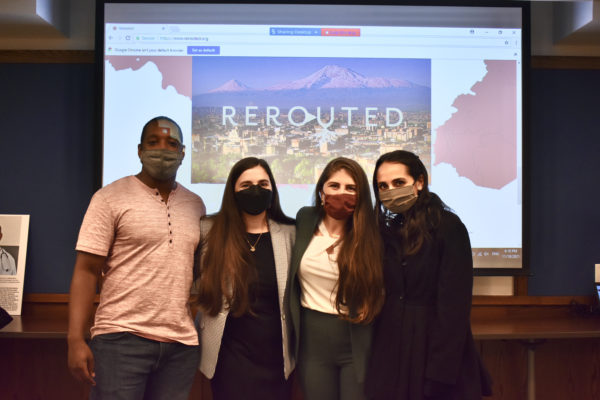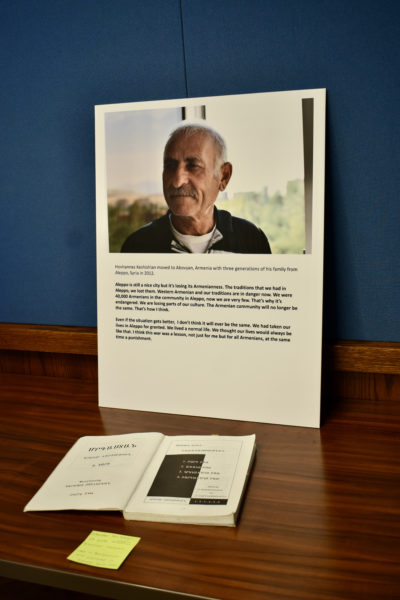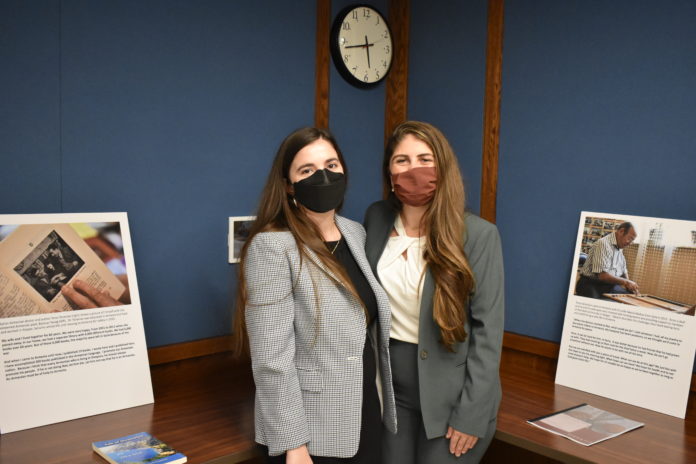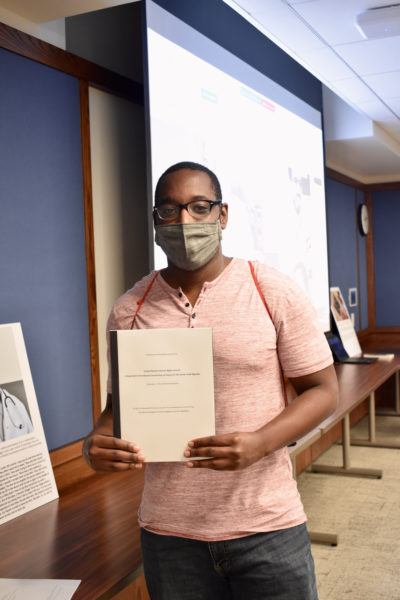CAMBRIDGE, Mass. — The Harvard Law School (HLS) Library welcomed the two co-founders of the Rerooted Archive, Anoush Baghdassarian and Ani Schug, for its first fall “Ideas Salon” gathering, an event series meant to highlight the work Harvard Law School students do outside of the classroom. Baghdassarian, a third-year law student at HLS, and Schug, who works for an immigration non-profit, were sharing their incredible archive of Syrian-Armenian refugee testimonies, a project they had jointly started in 2017 and continue to work on to the present day.
The Syrian Civil War, which has been raging for over ten years, left a horrific toll on the country with over 400,000 lives lost, displacing over half of the country’s population including many Syrian-Armenians. The Armenian community in Syria, which by some accounts was over 100,000, is almost fully composed of ancestors of the 1915 Armenian Genocide. Now, 100 years after the Genocide, the community faced another horror. Since 2011, more than half of the Armenian population living in Syria, mainly Aleppo, has been forced to flee its homes due to the current conflict. Rerooted’s oral history project focuses on collecting the narratives of some of the estimated 20,000 Syrian-Armenian refugees currently resettled in Armenia and beyond. The documentation process not only archives stories but helps to humanize the aggregate statistics regarding the millions of Syrian refugees currently rebuilding their lives not only in Armenia but also across the Middle East and Europe.

Following a warm introduction from Jocelyn Kennedy, the executive director of the Harvard Law School Library, an excerpt was screened from an interview of a Syrian-Armenian couple who had fled Syria and repatriated to Armenia. “We want the stories of the Syrian-Armenian people to be amplified,” Baghdassarian explained, as the goal of the archive is to preserve the language, customs, and culture of Syrian-Armenians, provide vibrant primary sources for scholarly purposes, and ensure Armenian voices are heard in the efforts for justice for Syria. Now with over 200 testimonies collected, Schug and Baghdassarian highlighted their accomplishments and vision for the future, describing in detail the work Rerooted completed in the summer of 2021.
Rerooted was able to not only gather more testimonies, but hire interns, largely from Harvard Law School, who analyzed the existing stories in the archive and created comprehensive reports with that data. The interns, also present at the Ideas Salon, were called up to share their work experience with Rerooted to the greater Harvard community. One of them, Mtume Sangiewa, a second year HLS student, presented the report he contributed to that will be sent to the United Nations Commission of Inquiry on Syria, and shared why his experience working with Syrian-Armenians was of importance to him. In the past, during military service, Sangiewa explained that he never truly had the opportunity to interact with the communities and populations where he was stationed and being a part of Rerooted gave him the ability to not only apply his expertise as a law student but be truly immersed in the firsthand narratives and stories of people.

Another intern, Mazelle Etessami, described her experience going to Lebanon to conduct interviews with the Syrian-Armenian community there. Amre Metwally, a third intern with Rerooted, shared with the audience the portal he created for the Rerooted Archive, which guides users on how to conduct interviews themselves when a Rerooted member cannot.
Following the presentation, guests were invited to the adjacent exhibit room to look at poster boards with pictures and quotes on them highlighting individual narratives from Rerooted Archive interviews. There were also copies of the reports written and submitted to the UN, a litigation guide, education plans, video testimonies playing on loop, and the opportunity to explore the Rerooted Archive’s interactive website. In addition, there were artifacts from the Syrian-Armenian community such as textbooks and photographs for visitors to explore.









